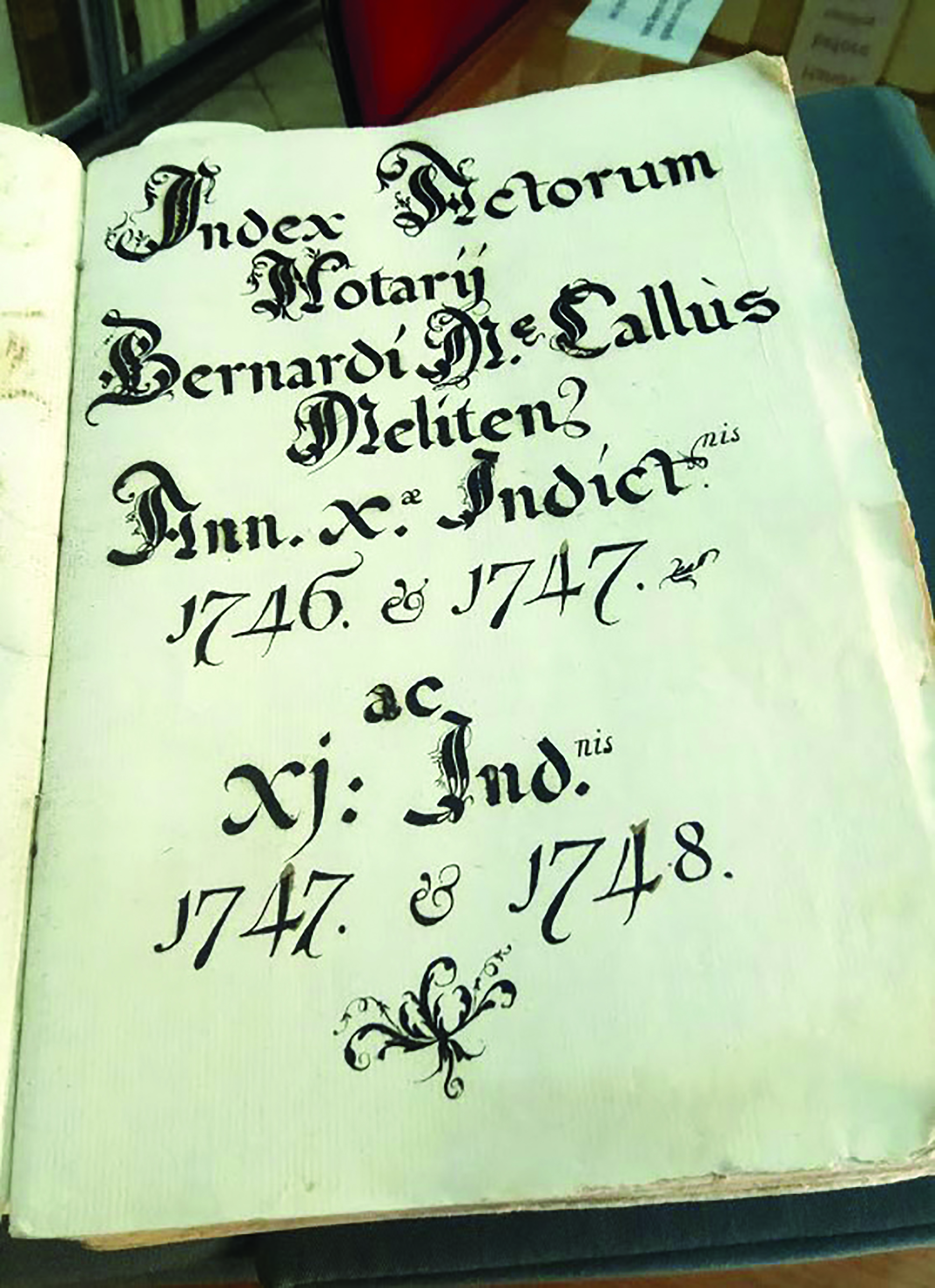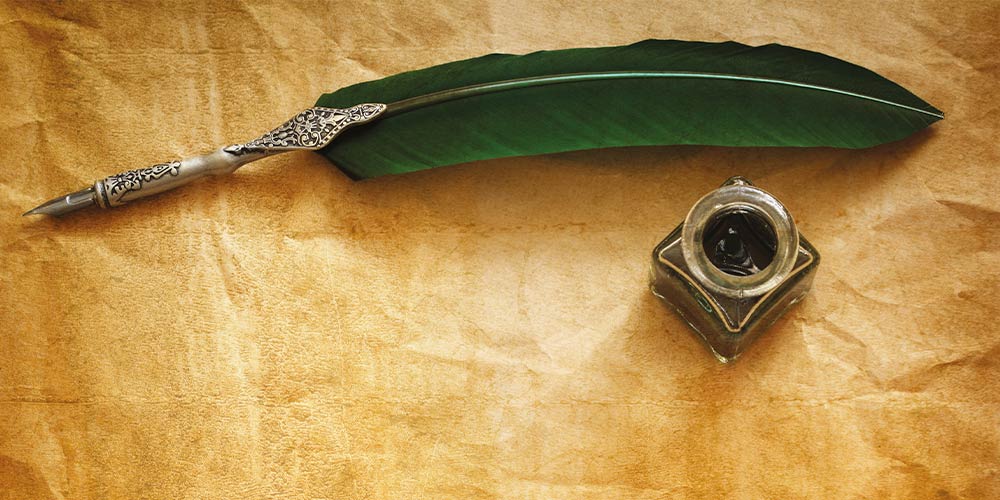Like a painting, society is created out of different, colourful brush strokes of social, legal, economic, political, and religious aspects. The work of notary Bernardo Maria Callus depicts the changes and developments, traditions and values, and aspirations of the Order of St John’s as well as Maltese individuals’ needs. The acts of notary Callus are important for the study of continuity, change, and interaction in mid-eighteenth century Hospitaller Malta.
By examining the second volume of notary Callus under the supervision of Dr Emanuel Buttigieg (Faculty of Arts, University of Malta), I encountered a new perspective about the administration of the Order of St John. Individual knights created foundations, similar to today’s financial organisations, which leased property to the Maltese. Subsequently the income was invested into military, naval, or charitable needs of Maltese society (and the Order itself). By examining these contracts, I was able to continue building the picture of 18th-century trends in leasing and renting property in Malta, as well as the architectural and rural needs of the Maltese population at the time. This study helped piece together some of the changes in Malta’s landscape left by people.

With every page I turned, a new story emerged: a family adopting a child from the Holy Infirmary, fiscal receipts for parties, a drunkard asking the Grand Master for help in paying his debt, a woman noting her last wishes on her deathbed, or a father describing his daughter’s dowry. Notarial documents are full of these stories and much more. This research was a wonderful adventure, allowing me to immerse myself in the stories of mid-eighteenth-century Malta. It provided new insight into the daily lives of Maltese individuals, the work of the notary, the voice and power of women in society, and the changes to our islands’ landscape. In order to keep piecing together this puzzle, I have embarked on an MA in History to research the history of children and youths in Malta.
History is not only a story. It is an opportunity to learn from past mistakes. It can help rediscover traditions that explain our identity. By studying historical documents and continuing to piece together our history, we can help bridge our historical past and the effect it has on today.
This research was carried out as part of the Bachelor of Arts in History, Faculty of Arts, University of Malta. The study is called: The economy, women and social interactions in eighteenth-century Malta: A study of the acts of Notary Bernardo Maria Callus, Vol.2, 1746–1748.





Comments are closed for this article!